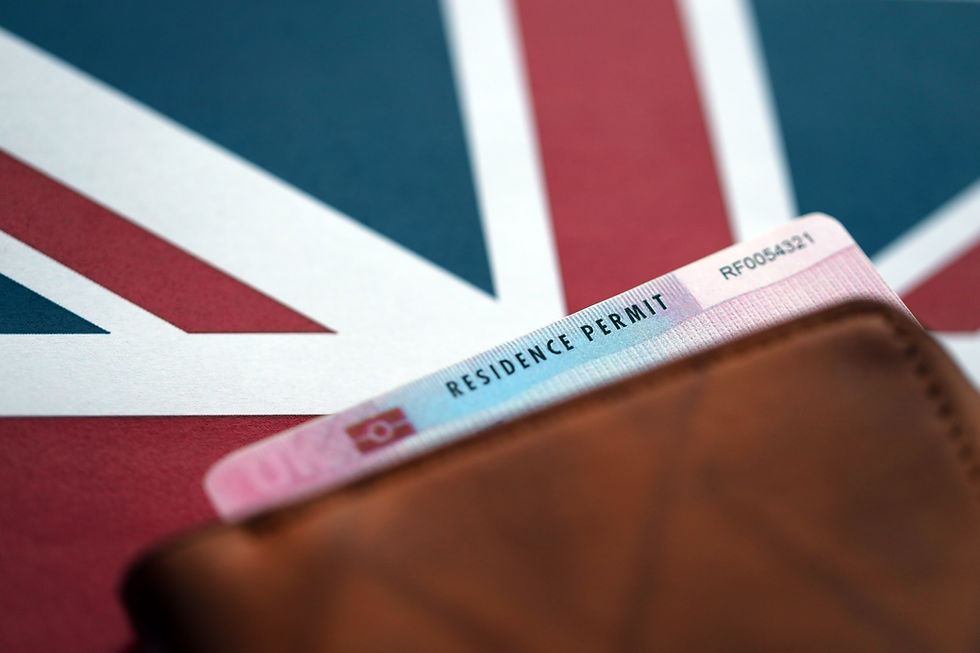UK Announces Permanent Closure Of Tier 1 Investor Route
- actlondon
- Feb 6, 2023
- 3 min read
Following the Salisbury poisonings in March 2018, the Home Secretary Amber Rudd committed to a review of individuals who had entered the UK under the Tier 1 (investor) immigration route, prior to reforms made in 2015.
The Government is now providing a final response summarising the findings of that review.
The Tier 1 (Investor) route had allowed individuals (primarily non-EEA nationals) investing in the UK to enter, and eventually settle in the UK. It was launched in 2008 and at that time required applicants to be able to demonstrate they had access to £1 million of available funds to invest in UK government bonds and shares or loan funds to UK companies. The UK had operated some form of investor visa programme of high-net-worth personal investment since 1994. The tier 1 (investor) visa route was ultimately closed on 17th February 2022.
Home Office considered the cases of the 6,312 Tier 1 (Investor) migrants and Tier 1 (Investor) adult dependents who obtained leave between the launch of the route on 30 June 2008, and the introduction on 6 April 2015 of a requirement to open a regulated UK bank account before applying for a visa under the route.
Each case was reviewed for potential links to criminality or other risk factors. Officials also considered whether there were wider risks presented in the design and implementation of the route at that time, and the overall economic benefit of the route.
The review of cases identified a small minority of individuals connected to the Tier 1 (Investor) visa route that were potentially at high risk of having obtained wealth through corruption or other illicit financial activity, and/or being engaged in serious and organised crime. The work carried out only implies that a particular individual potentially poses a risk of having connections to criminality; it does not mean guilt has been proven.
UK law enforcement have access to this date and are taking action as appropriate under their operational remits. Information on all high-risk individuals has been discussed with the Home Office’s independent operational and a range of actions has and is being considered including, where appropriate, immigration action.
During the operation of the tier 1 (Investor) visa programme, the route has had a refusal rate for main applicants and their dependents of 7.9% for Entry Clearance applications, 4% for Leave to Remain applications, for main applicants seeking Indefinite Leave to remain (settlement) the refusal rate is 2.2%.
The lessons learned from this review, and from ongoing monitoring and evaluation of the Tier 1 (Investor) route and the impact of reforms made between 2014 and 2019, formed a significant part of evidence base on which the government made its decision to ultimately close the route on the 17th of February 2022.
The Home Office has found that there are inherent difficulties in an investment-based immigration route based on passive wealth, both in terms of security and economic value and will ensure that such mistakes are not repeated.
The UK’s openness to global business carries risks that malign actors will take advantage of the systems to pursue corrupt and criminal ends. The UK ensures that kleptocracies such as Russia are not able to act with impunity overseas. That is why the UK has taken strong action since the start of the war, and why it will continue to do so in the years to come. The UK has swiftly implemented the strongest set of economic sanctions ever imposed against a G20 country. This stands at 1,200 individuals and 120 entities linked to the Russian state. In total, the UK has frozen over 18 billion pounds in Russian assents since the war began.
The UK has established a new Combatting Kleptocracy Cell in the National Crime Agency to investigate criminal sanctions evasion and high -end money laundering. The UK has brought forward new and robust legislation to prevent corrupt elites abusing our open economy, including establishing a new, open register for overseas entities owning property in the UK.
The Government is clear that any future visa route facilitate investment-based migration must not offer entry solely on the basis of the applicant’s personal wealth and are continuing to consider options to bring forward alternative provisions to support investment-based migration benefiting the UK economy on a fundamentally different model within the Innovator visa programme which places more emphasis on the applicant’s track record as an investor in innovative business and an assessment of their plans to actively engage in such activity in the UK.
Contacts
If you require assistance in relation to the above and/or would like to discuss anything further, please do not hesitate to contact info@act.london or your usual A.C.T. contact.



Comments